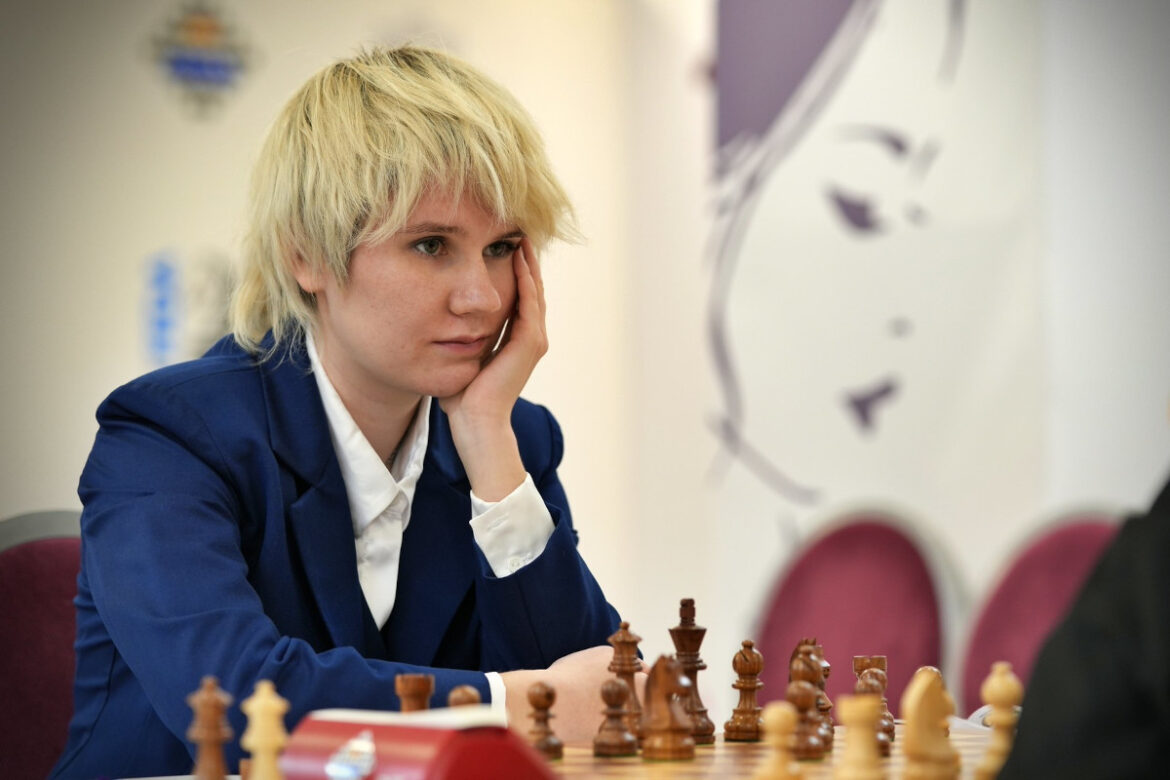Russia and Georgia prevail in their pools
The first stage of the Women’s World Team Championship came to an end on Thursday in Linares, with the field reduced from twelve to eight teams ahead of the knockout phase, which will run from Friday to Sunday.
The day began with two teams already out of contention – Peru in Pool A and France in Pool B – while in Pool B it had also been mathematically confirmed before round five that Georgia would finish first, as they held a three-point lead over their nearest chasers (each match win being worth two points).
Data, plans, practice – the new Opening Report In ChessBase there are always attempts to show the typical plans of an opening variation. In the age of engines, chess is much more concrete than previously thought. But amateurs in particular love openings with clear plans, see the London System. In ChessBase ’26, three functions deal with the display of plans. The new opening report examines which piece moves or pawn advances are significant for each important variation. In the reference search you can now see on the board where the pieces usually go. If you start the new Monte Carlo analysis, the board also shows the most common figure paths.
By the close of play, Russia (competing as the FIDE team) and Georgia were the winners of their respective pools, and most of the pre-tournament favourites secured places in the quarterfinals. The one major exception was Ukraine, whose defeats to Uzbekistan and India across the final two days proved decisive in the closely contested Pool B.
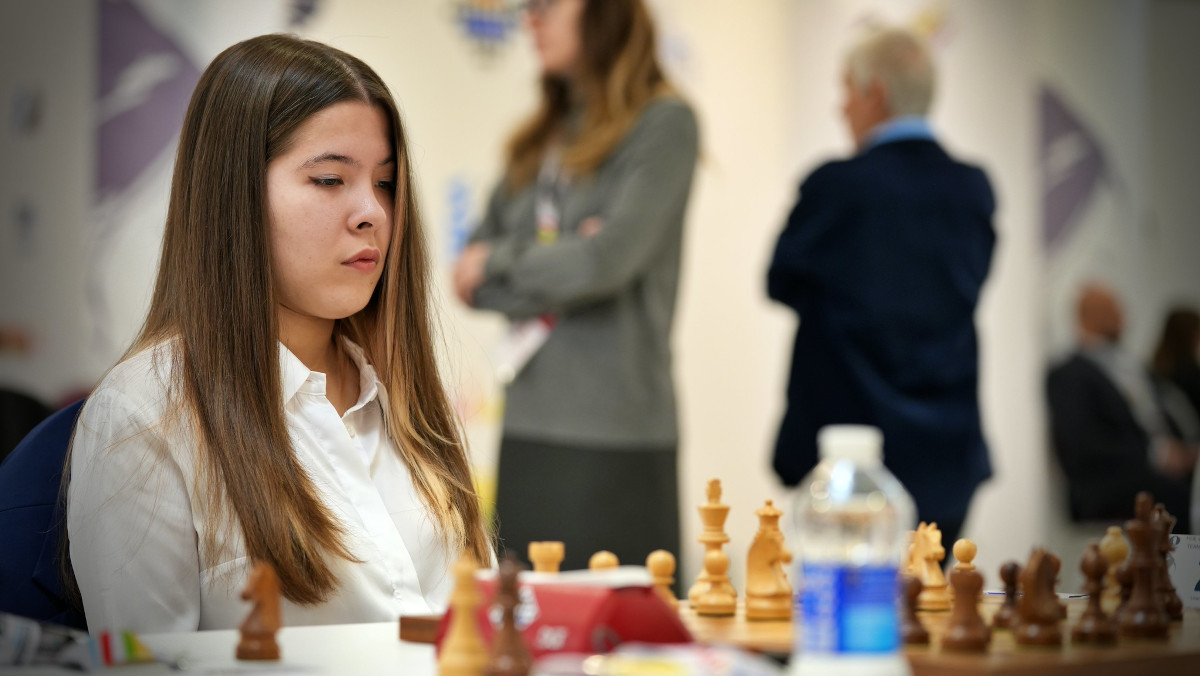
Russia’s Leya Garifullina scored 3 out of 4 in the round-robin | Photo: Pavel Dvorkovich
Both Uzbekistan and India reached the knockout stage, with India’s qualification standing out given that captain Swayams Mishra fielded what was effectively a “B-team” due to the absence of Humpy Koneru, Divya Deshmukh, Vaishali Rameshbabu and Harika Dronavalli.
The quarterfinal draw offers a number of interesting pairings, the most notable being China v United States. China finished second in Pool A, while the United States placed third in Pool B. The Chinese team does not feature the country’s four established representatives currently dominating the women’s circuit – Ju Wenjun, Tan Zhongyi, Lei Tingjie and Zhu Jiner — but it does include Hou Yifan, who despite playing only selectively remains the highest-rated woman in the world, as well as two of the strongest juniors on the international scene, Lu Miaoyi (born 2010) and Song Yuxin (born 2005). The United States, meanwhile, field five of their six highest-rated national players, the only exception being rising star Alice Lee.
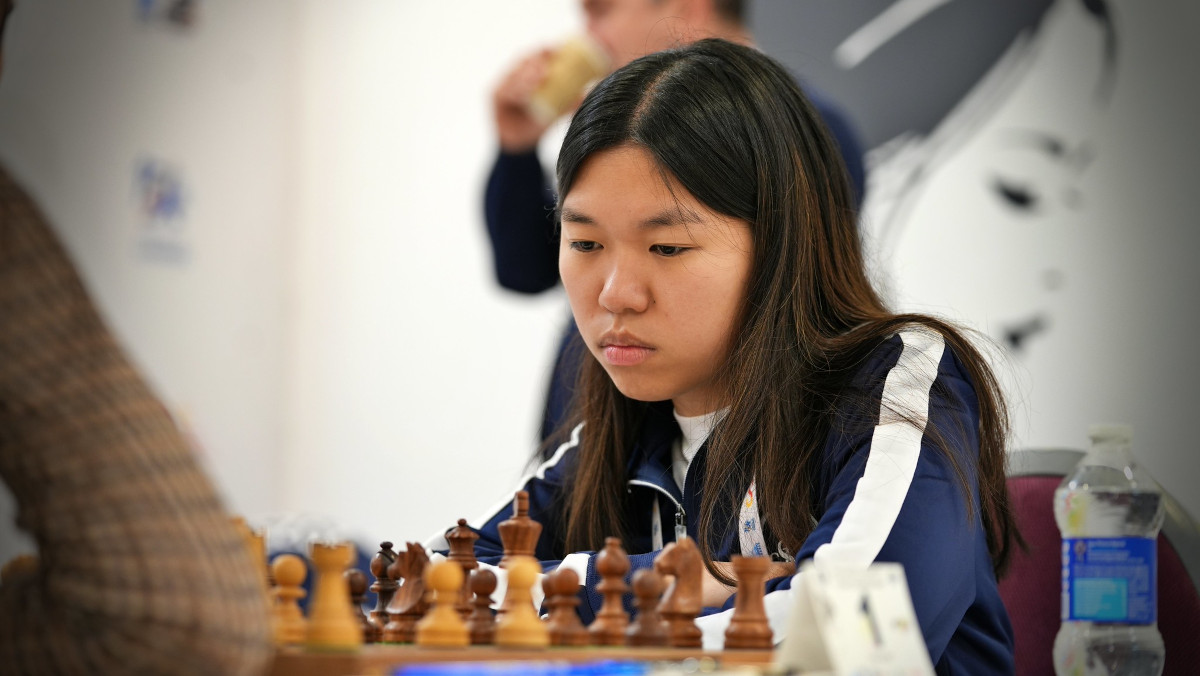
Carissa Yip, who this year won the US Women’s Championship for a fourth time, is playing on the top board for her national team | Photo: Pavel Dvorkovich
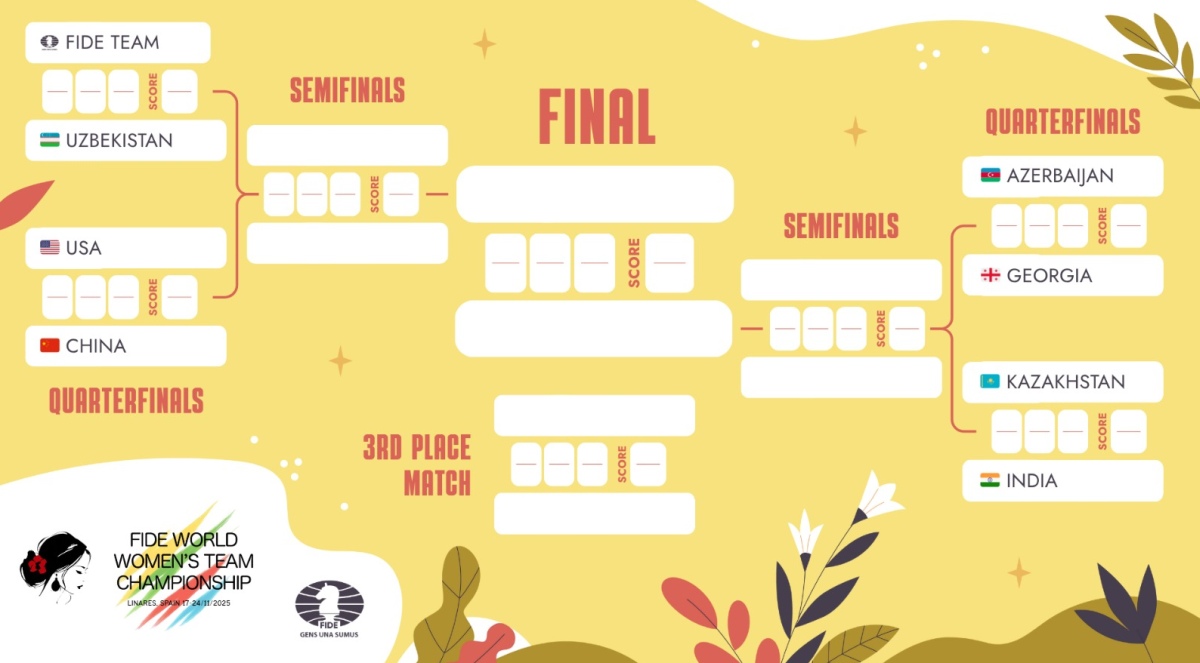
Pool A
In Pool A, Russia entered the final round with a perfect score, having won all four of their previous matches, while their opponents, Peru, had yet to collect a single match point. The Russian squad duly secured another victory, concluding the round-robin with a flawless record. The remaining two matches in the group proved decisive for the final standings.
Kazakhstan and the United States faced each other with second place at stake, while Azerbaijan and Spain met in a direct fight for qualification. Both encounters ended with unexpectedly lopsided 3½-½ scores. Kazakhstan’s victory earned them second place – setting up a quarterfinal clash with India – while Azerbaijan’s win eliminated the home team, Spain, from the competition.
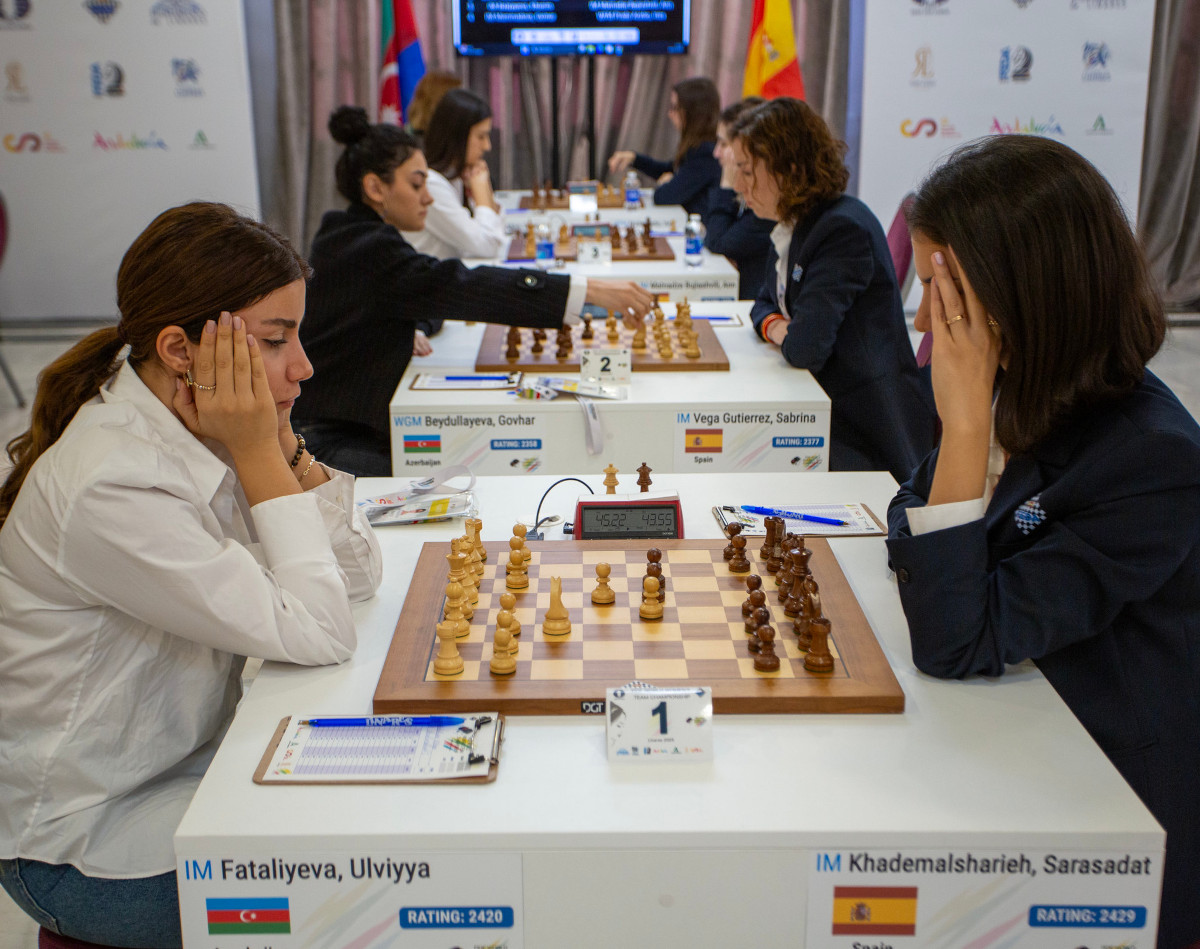
Azerbaiyan v. Spain | Photo: Raúl Martínez
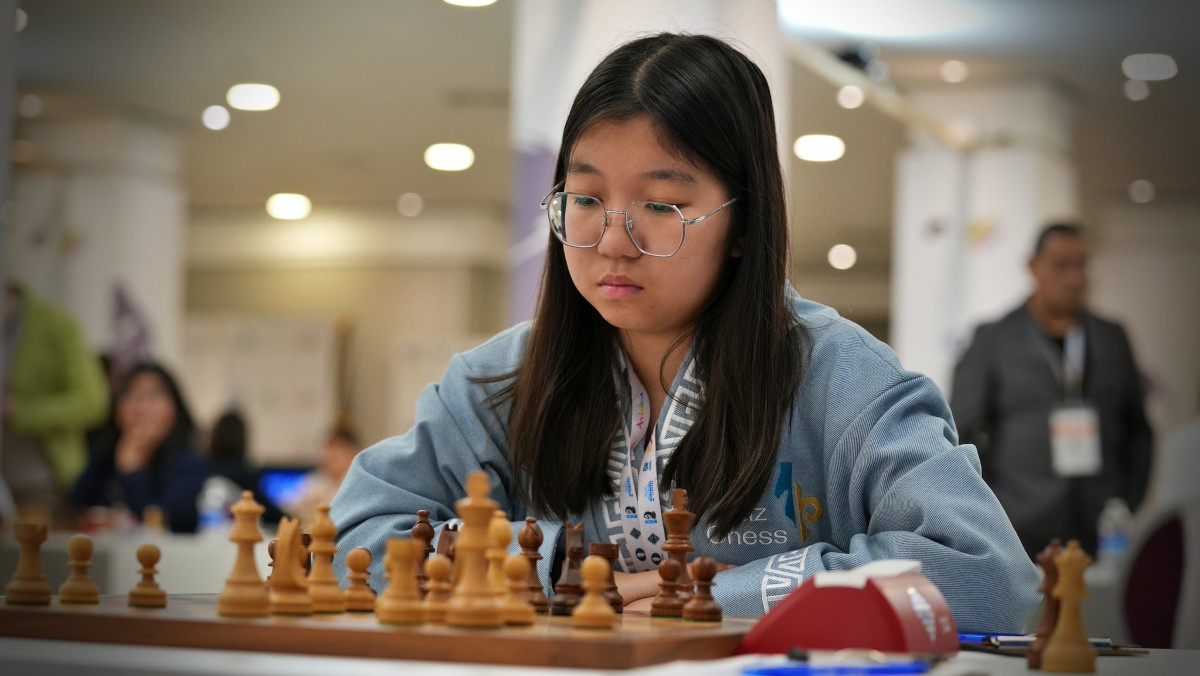
Elnaz Kaliakhmet (b. 2010) scored 2½ out of 3 for Kazakhstan | Photo: Pavel Dvorkovich
Fataliyeva 1-0 Khadem
Analysis by GM Karsten Müller
Final standings
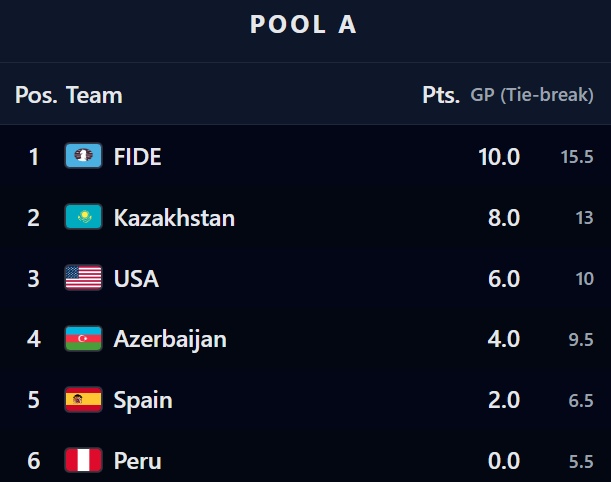
Pool B
Pool B followed a similar structure in the final round, with the group leaders facing the one already-eliminated team. Georgia, having secured first place the previous day, met France, and unlike in Pool A, the underdogs prevailed, as France obtained a consolation win to close their campaign.
Ukraine, starting the day in fifth place, needed to beat China and then rely on tiebreaks to reach the knockout. However, China’s players maintained their sharp form. Wins by Song Yuxin and Lu Miaoyi on the top boards gave China a 3–1 victory and ended Ukraine’s hopes.
The Ragozin Defence (1.d4 Nf6 2.c4 e6 3.Nf3 d5 4.Nc3 Bb4) has become a cornerstone of modern chess theory. With 3.Nf3 gaining popularity as a way to avoid Nimzo-Indian setups and the challenges Black faces in the Queen’s Indian, the Ragozin offers a solid and dynamic alternative.
Free video sample: Introduction
Free video sample: 5.cxd5 exd5 6.Bf4
In the group’s remaining match, India defeated Uzbekistan 2½–1½, with Seshadri Srija scoring the decisive point on board four. The result allowed India to finish third, while Uzbekistan took the remaining qualifying spot in fourth place.
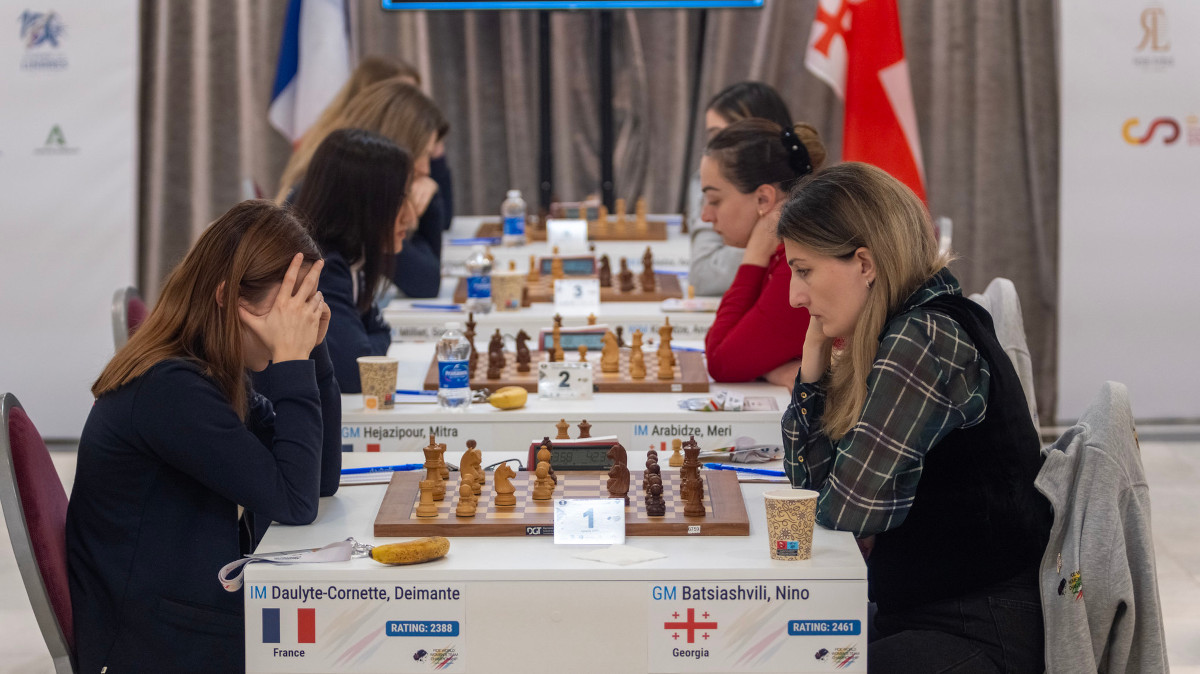
France v. Georgia | Photo: Raúl Martínez
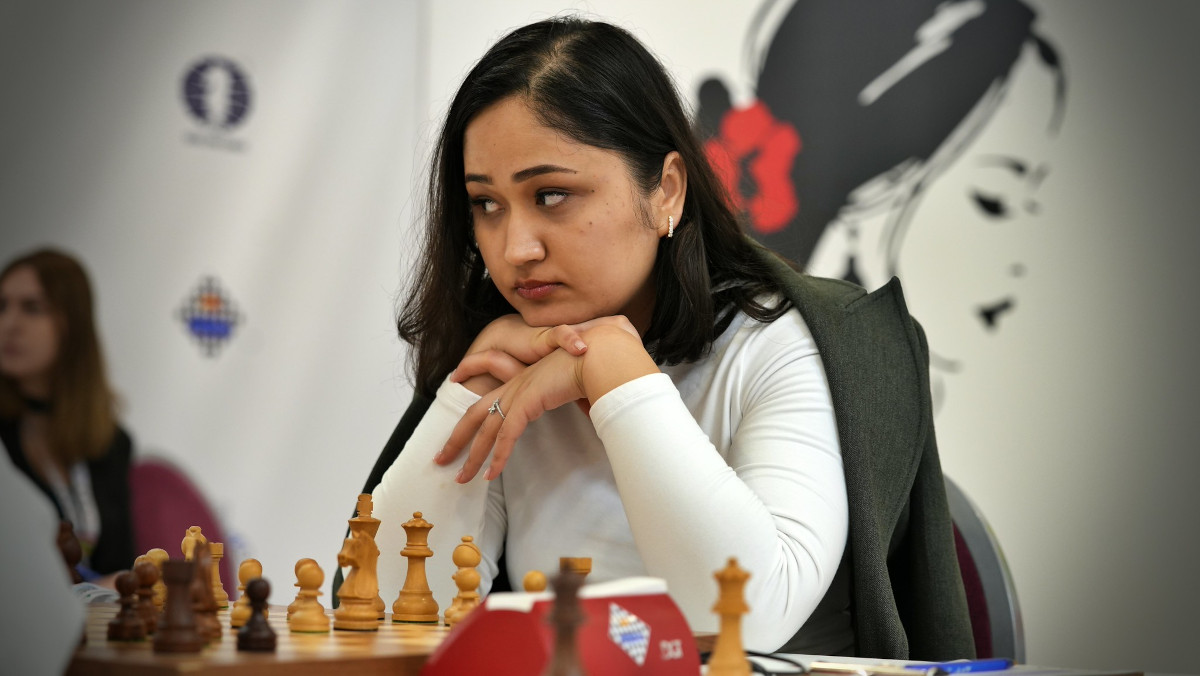
After representing the United States from 2020 to 2024, Gulrukhbegim Tokhirjonova has now returned to Uzbekistan’s national team | Photo: Pavel Dvorkovich
Savitha 1-0 Zhai (Round 3)
Analysis by GM Karsten Müller
Final standings
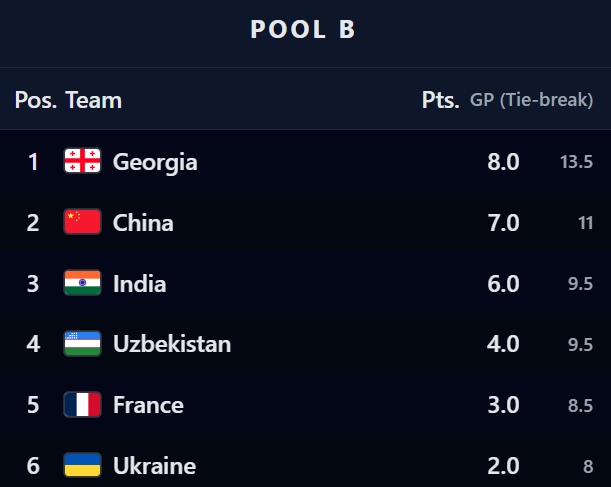
All games
EXPAND YOUR CHESS HORIZONS
Data, plans, practice – the new Opening Report In ChessBase there are always attempts to show the typical plans of an opening variation. In the age of engines, chess is much more concrete than previously thought. But amateurs in particular love openings with clear plans, see the London System. In ChessBase ’26, three functions deal with the display of plans. The new opening report examines which piece moves or pawn advances are significant for each important variation. In the reference search you can now see on the board where the pieces usually go. If you start the new Monte Carlo analysis, the board also shows the most common figure paths.
